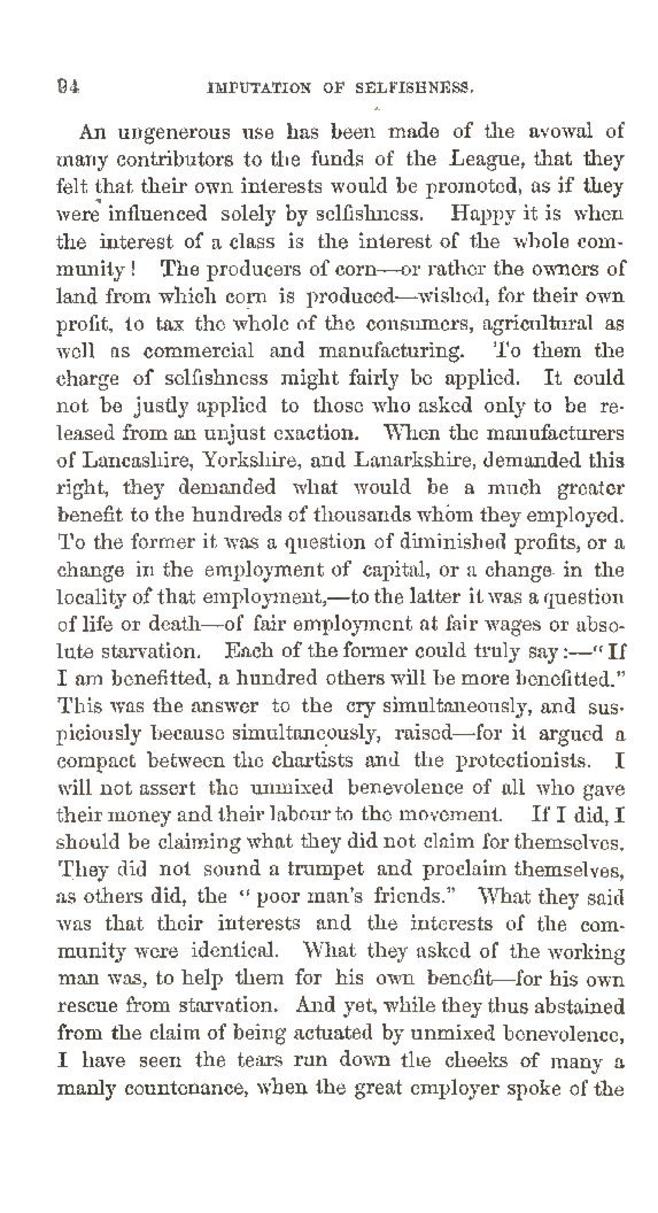An ungenerous use has been made of the avowal of many contributors to the funds of the League, that they felt that their own interests would be promoted, as if they were influenced solely by selfishness. Happy it is when the interest of a class is the interest of the whole community! The producers of corn—or rather the owners of land from which corn is produced—wished, for their own profit, to tax the whole of the consumers, agricultural as well as commercial and manufacturing. To them the charge of selfishness might fairly be applied. It could not be justly applied to those who asked only to be released from an unjust exaction. When the manufacturers of Lancashire, Yorkshire, and Lanarkshire, demanded this right, they demanded what would be a much greater benefit to the hundreds of thousands whom they employed. To the former it was a question of diminished profits, or a change in the employment of capital, or a change in the locality of that employment,—to the latter it was a question of life or death—of fair employment at fair wages or absolute starvation. Each of the former could truly say:—"If I am benefitted, a hundred others will be more benefitted." This was the answer to the cry simultaneously, and suspiciously because simultaneously, raised—for it argued a compact between the chartists and the protectionists. I will not assert the unmixed benevolence of all who gave their money and their labour to the movement. If I did, I should be claiming what they did not claim for themselves. They did not sound a trumpet and proclaim themselves, as others did, the "poor man's friends." What they said was that their interests and the interests of the community were identical. What they asked of the working man was, to help them for his own benefit—for his own rescue from starvation. And yet, while they thus abstained from the claim of being actuated by unmixed benevolence, I have seen the tears run down the cheeks of many a manly countenance, when the great employer spoke of the
Page:History of the Anti corn law league.pdf/110
94
IMPUTATION OF SELFISHNESS.
